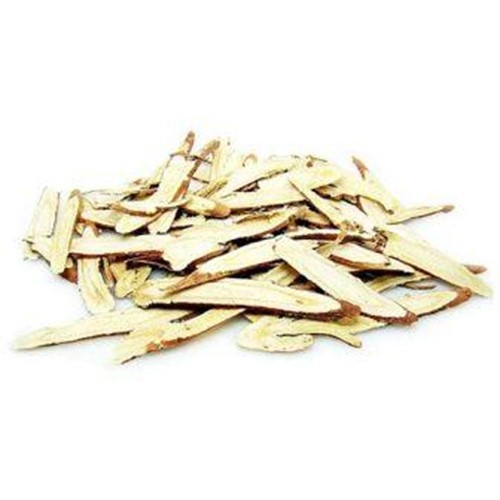
Scientific Name: Glycyrrhiza glabra
Higher Classification: Licorices
Family Name: Fabaceae
Rank Name: Species
Order Name: Fabales
Licorice root
Published Date: 6/17/2023 5:55:37 AM
What is Licorice:
- Licorice is an adaptogen, native in parts of Europe and Asia. The root is used as medicine to treat skin infection like eczema, cough and sore throat, digestive problems, respiratory problems, nasal and chest congestion.
- Composition: Licorice root contains "Glycyrrhizin", which is also called "Glycyrrhizic acid". Glycyrrhizic acid is mainly used as a flavoring and sweetening agent for bitter drugs, beverages, candies, and chewing gum.(More Details)
Availability:
- Licorice root is used both as a flavoring agent and medicinal treatment. It comes in many forms, including teas, capsules, liquids, and even topical gels.
What are its benefits:
- Applying a gel containing licorice three times daily for 2 weeks seems to reduce redness, swelling, and itching.
- Having powerful anti-inflammatory, anti-biotic, and anti-asthmatic properties, licorice plays a pivotal role in treating the common cold, cough and flu symptoms.
- Sucking on a licorice lozenge or gargling with a licorice fluid shortly before placement of a breathing tube seems to help prevent cough and sore throat from occurring when the tube is removed.
- Taking certain combination products containing licorice root and many other herbal ingredients seems to improve symptoms of indigestion.
- Licorice may help kill bacteria in the mouth that cause tooth decay.
- Due to their anti-inflammatory and antimicrobial effects, both licorice root extract and tea may aid upper respiratory conditions.
- Licorice root may help protect against bacteria that can lead to cavities.
- Licorice root extract and its glycyrrhizin may help treat peptic ulcers.
- Licorice root extract may also alleviate symptoms of gastroesophageal reflux disease (GERD), including acid reflux and heartburn.
Ayurvedic Properties:
- Licorice root also known as "Yashtimadhu", or "Mulethi", or "Sweet Stick," and recognized as a "Rasayana" (Rejuvenative tonic) in Ayurveda.
- Being heavy and unctuous, it has an antagonistic effect towards Vata (i.e. air) Doshas whereas having a sweet metabolic taste and cold potency helps the herb to pacify the Pitta (i.e. fire and air) Doshas.
- This herb as one of the "Medhya Rasayana" herbs that has a strong rejuvenative effect on the body and also helps to improve memory and intellectual capabilities.
- Prepare a "mulethi" decoction or "kadha" by boiling a few licorice root sticks in water and take this several times a day to cure cough and cold.
- By boiling a few pieces of licorice root, "tulsi" leaves, "pudina" leaves in water, Strain the mixture and drink by infusing it with a spoon of honey to open a blocked nose and reduce inflammation due to chest congestion.